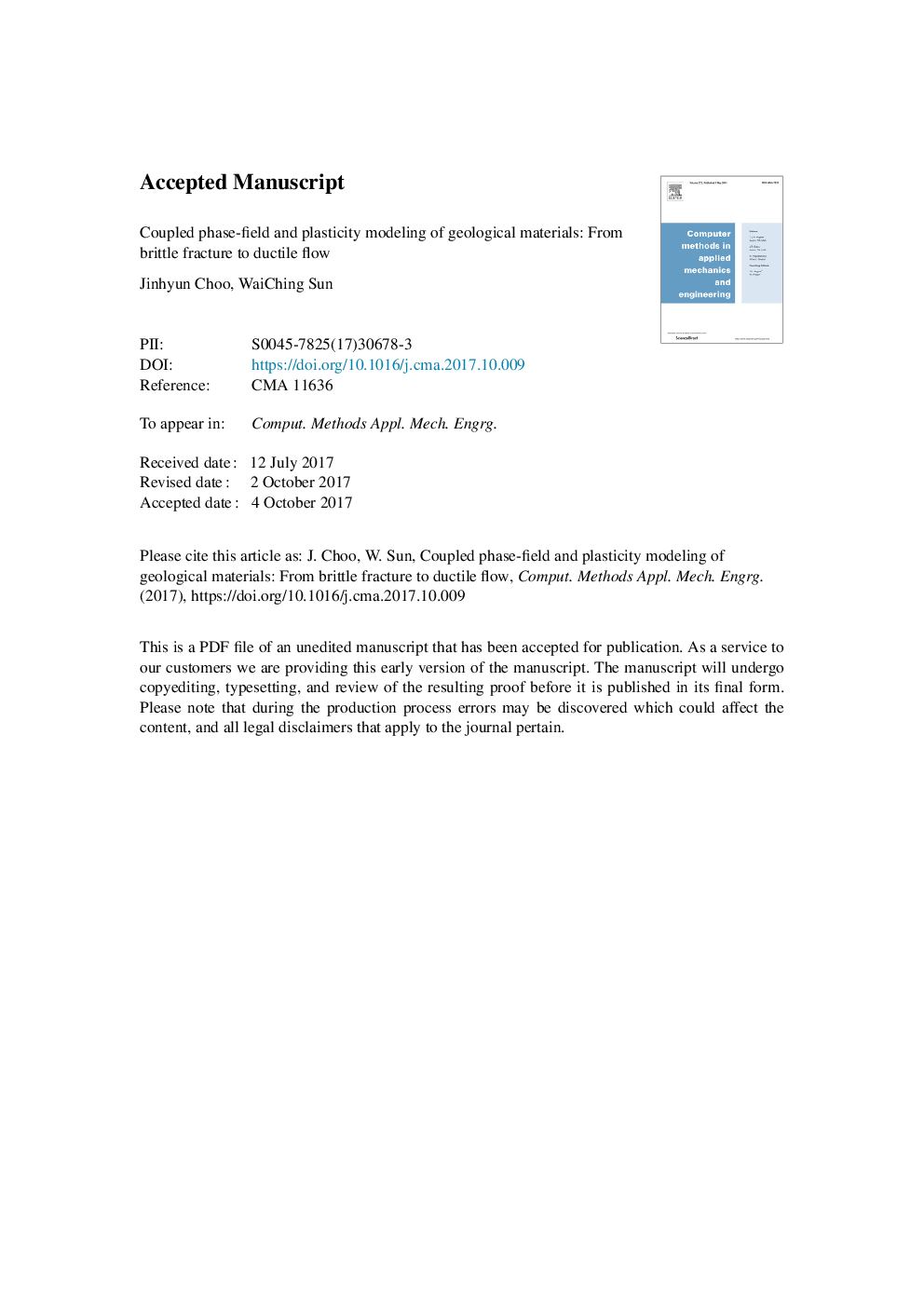| Article ID | Journal | Published Year | Pages | File Type |
|---|---|---|---|---|
| 6915680 | Computer Methods in Applied Mechanics and Engineering | 2018 | 47 Pages |
Abstract
The failure behavior of geological materials depends heavily on confining pressure and strain rate. Under a relatively low confining pressure, these materials tend to fail by brittle, localized fracture, but as the confining pressure increases, they show a growing propensity for ductile, diffuse failure accompanying plastic flow. Furthermore, the rate of deformation often exerts control on the brittleness. Here we develop a theoretical and computational modeling framework that encapsulates this variety of failure modes and their brittle-ductile transition. The framework couples a pressure-sensitive plasticity model with a phase-field approach to fracture which can simulate complex fracture propagation without tracking its geometry. We derive a phase-field formulation for fracture in elastic-plastic materials as a balance law of microforce, in a new way that honors the dissipative nature of the fracturing processes. For physically meaningful and numerically robust incorporation of plasticity into the phase-field model, we introduce several new ideas including the use of phase-field effective stress for plasticity, and the dilative/compactive split and rate-dependent storage of plastic work. We construct a particular class of the framework by employing a Drucker-Prager plasticity model with a compression cap, and demonstrate that the proposed framework can capture brittle fracture, ductile flow, and their transition due to confining pressure and strain rate.
Related Topics
Physical Sciences and Engineering
Computer Science
Computer Science Applications
Authors
Jinhyun Choo, WaiChing Sun,
